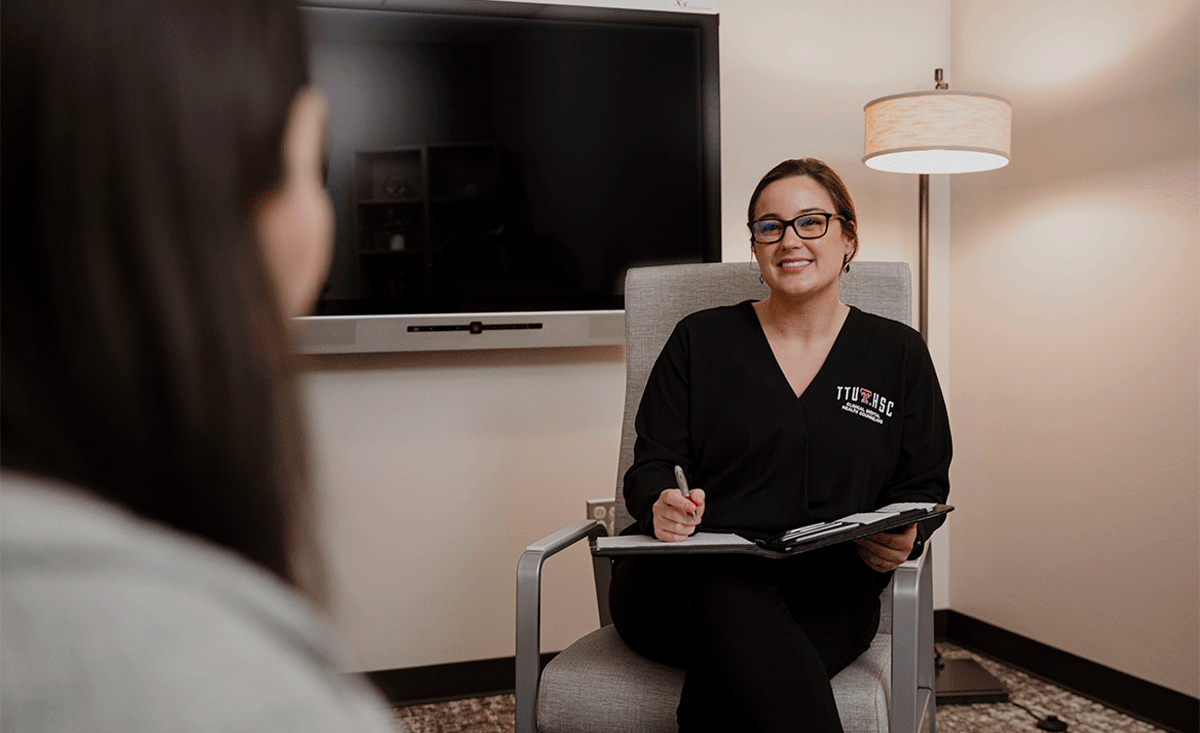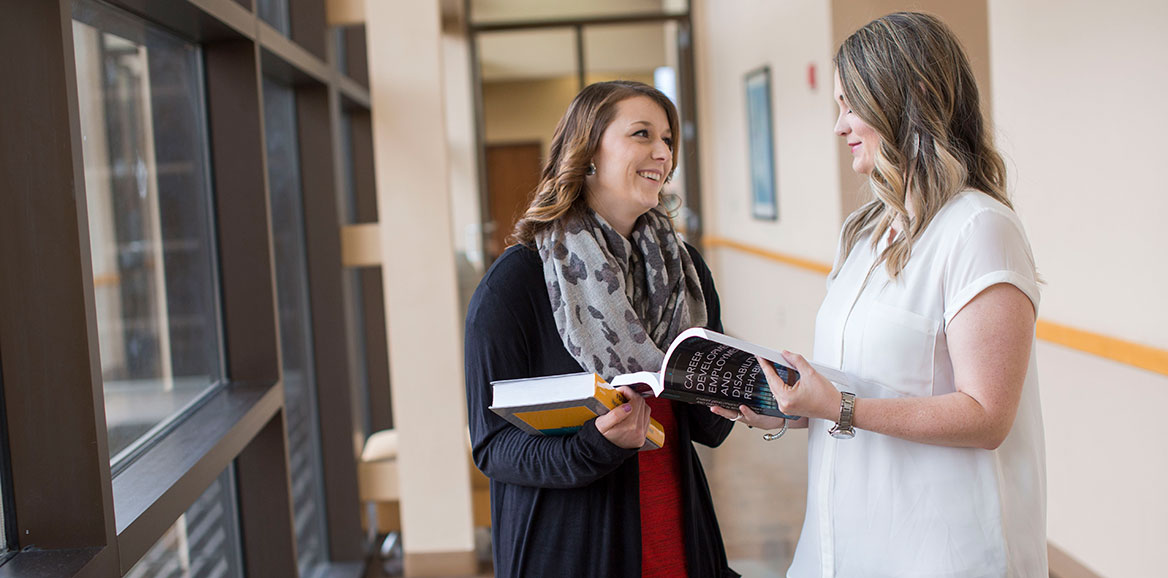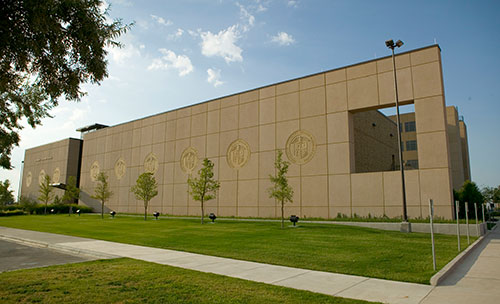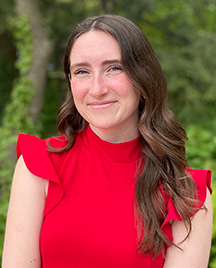Master of Science in Clinical Rehabilitation Counseling

What Is Clinical Rehabilitation Counseling?
The Commission on Rehabilitation Counselor Certification refers to clinical rehabilitation counseling as “bringing together all the pieces of the puzzle.”
Clinical Rehabilitation Counselors empower their clients to make informed choices, build viable careers, and live more independently within their communities. They provide and coordinate services for people with a wide range of physical and psychiatric disabilities, chronic conditions or diseases, and social disabilities. Clinical rehabilitation counselors also work with employers to increase their understanding of how disabilities fit into the workplace.
About the Master of Science in Clinical Rehabilitation Counseling
The Master of Science in Clinical Rehabilitation Counseling (MSCR) program is a fully online graduate program designed to provide comprehensive training for the rehabilitation counseling field. Clinical education is an important component of our program and students are required to complete a practicum and internship under the supervision of an experienced professional in the field.
JAN. 1
JUNE 1![]()
Application open
MAY 1
OCT. 1![]()
Application deadline
FALL
SPRING![]()
Program Start Term
The MSCR curriculum places a strong emphasis on telehealth, a model of distance-based
service provision and a cutting-edge technique growing in practice and acceptance
in the health care field. All students in the MSCRC are eligible for a certificate
in telehealth upon graduation from the program.
The MSCR program is accredited by the Council for Accreditation of Counseling and
Related Education Programs (CACREP) as a clinical rehabilitation counseling program
through 2029.
Rehabilitation Counselor Certification
On completion of the MSCR program, you will possess the competencies and experiences necessary to take the Certified Rehabilitation Examination (CRC), National Counselor Examination for Licensure and Certification (NCE) as a Nationally Certified Counselor (NCC) and be able to apply for licensure as a Professional Counselor (LPC) in many states where it is required. Licensure requirements vary by state; you can find specific state information on theNational Board for Certified Counselors (NBCC) website.
Outcomes Report

Careers in Clinical Rehabilitation Counseling
As with many health care professions, clinical rehabilitation counselors work with clients in a variety of settings, including schools and universities, state workforce systems, veteran’s services, advocacy and non-profit agencies, employee assistance programs, private forensic practice, community rehabilitation centers, and hospital settings.
- According to the Bureau of Labor Statistics, increases in an aging population and continuing demands by impacted groups such as veterans and the disabled, translate into strong demand for the services provided by clinical rehabilitation counselors.
- The BLS projects a 13% job growth in the field through 2026, faster than average for all occupations.
- According to the BLS, most employers require a master’s degree in rehabilitation counseling.
The Master of Science in Clinical Rehabilitation Curriculum
The Master of Science in Clinical Rehabilitation Counseling program is committed to preparing you to work competently and ethically as a professional clinical rehabilitation counselor with the skills necessary to serve the unique needs of diverse communities, especially in rural settings. The program combines both academic instruction with supervised clinical experience. Classes include:
- Human Growth and Development.
- Psychopathology and Diagnosis.
- Multicultural Counseling.
- Addictions Counseling.
- Research and Statistics.
Successful completion of the program culminates in the Master of Science in Clinical Rehabilitation degree.
Explore the Master of Science in Clinical Rehabilitation curriculum.
I chose TTUHSC because I love Texas Tech and knew I would be getting top-tier education
while having the best staff and community to grow and learn with.
Callie Kaso
Connect With Us


